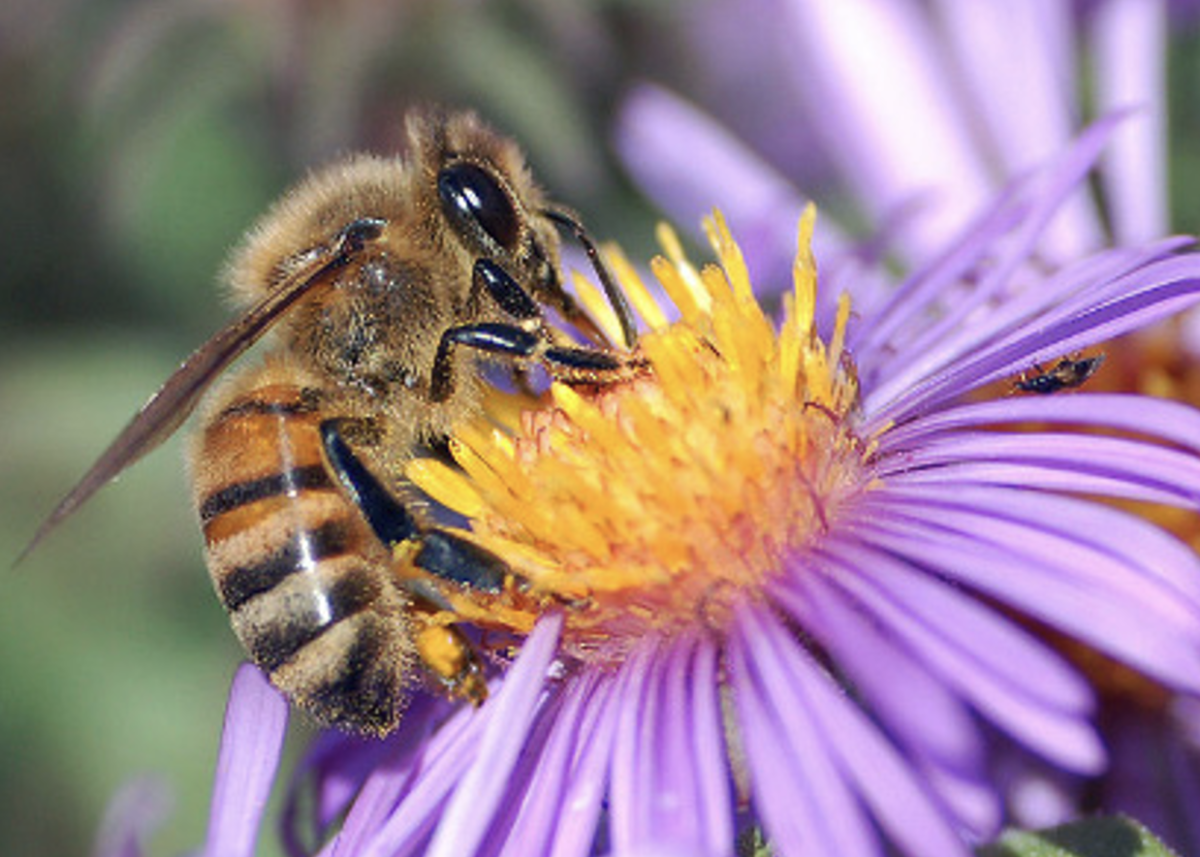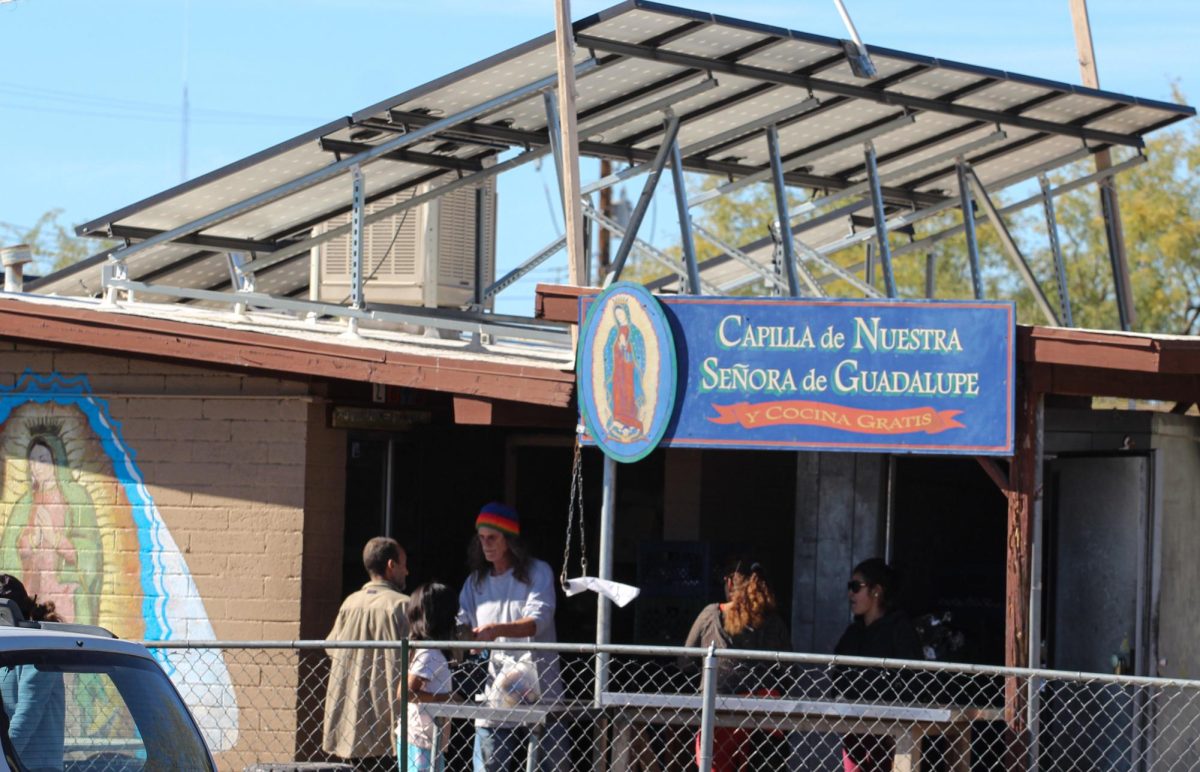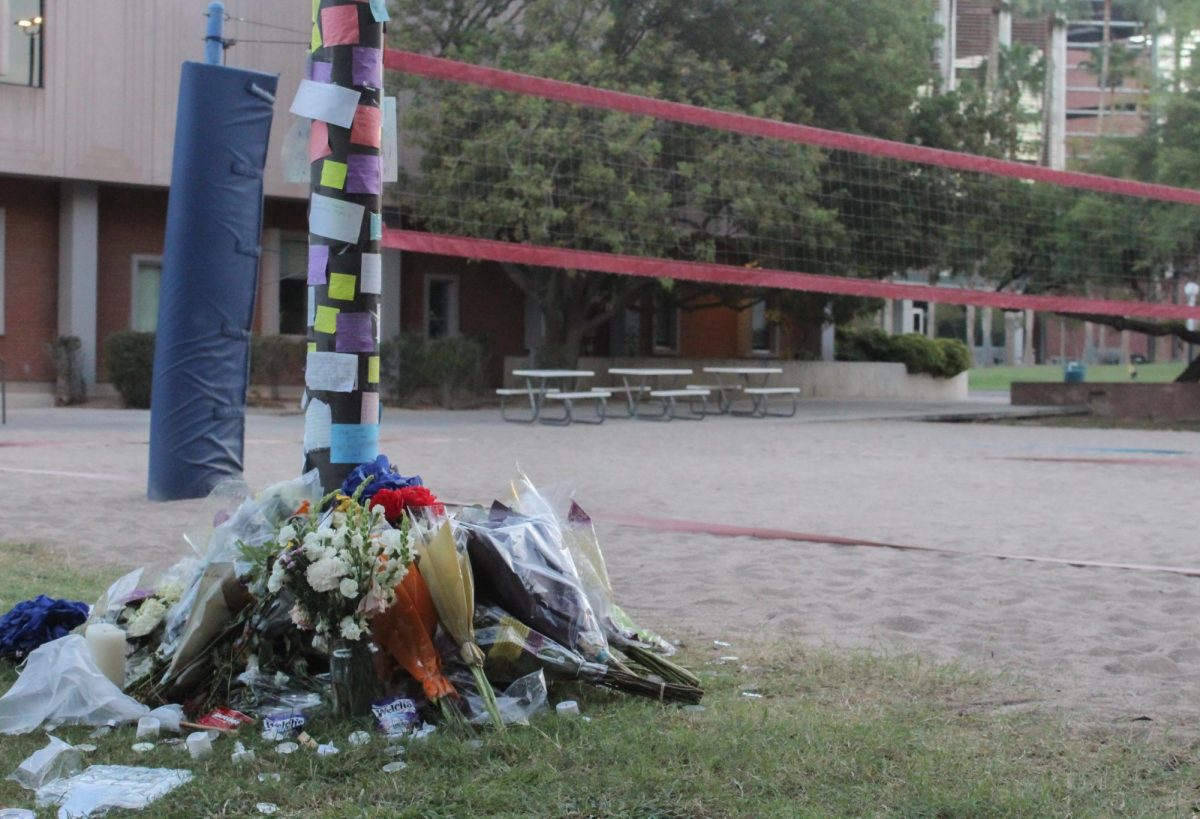It was early on that Wednesday morning in late August when Tucson Fire Department responded to a home on North Reno Avenue.
An aggressive bee swarm was attacking a family, forcing them to shelter in their home.
As firefighters sprayed a non toxic foam to kill some of the bees, they helped one of the residents get to the hospital to be treated for multiple bee stings.
Tucson Fire Chief Eric Jakoby said the Aug. 28 incident marked the 27th bee related call the department had responded to so far this year. That’s up from last year, when TFD had 24 bee calls. Not all of them are swarms; a bee call can include swarms at peoples houses, hives around schools, bees in houses and other situations.
Bees can be deadly to humans if they are allergic or if the bees attack in a swarm. University of Arizona Entomologist Lucy Li said about two people die each year from bee swarms in Arizona because the bee season is so long. A normal bee season starts in late spring and ends in October, but Arizona’s warm climate creates an almost year-round bee season.
When talking about bee stings and bee swarms like this we are almost always talking about honey bees; they are one of the only social bees that stay with a hive or colony with a queen. Bees like bald-faced hornets, paper wasps and yellowjackets also are considered social bees, but their colonies only have a couple hundred bees.
Longtime Tucson beekeeper Greg Denker said an average honey bee hive can have anywhere from 12,000 to 30,000 bees. This is why bee swarms, specifically honey bee swarms, can be deadly.
Even though one bee sting isn’t deadly, if you are covered in stings, the small amount of venom from the bee’s stingers can build up and leathally overload a human body, becoming as deadly as a rattlesnake bite.

Denker said there are only two reasons bees swarm: if there is a disturbance or a threat.
Bees see threats as anything that is interfering with a hive or something that is actively hurting the hive. For the most part, bees are docile and will let people get very close before declaring them a threat. If they do, it is time to leave.
Denker said a big thing people don’t understand is when to leave.
“If you think ‘I can take a sting or two, I’m just gonna keep working in my garden,’ that is a formula to get killed by bees,” Denker said. “Once you’ve been stung, you’ve been marked. And once you’re marked, they can focus on you.”
The other reason bees swarm is when a hive splits in half. When this happens the new queen will take half of the hive away to make a new hive somewhere else. This is how bees keep numbers down and do not overpopulate the hive.
This is when bees are more aggressive and are more likely to attack. That’s because while the queen looks for a new site to make a hive, she is out in the open, meaning every bee surrounds her and protects her. With their queen out in the open, the hive needs to protect the queen and the future of the hive is more important than anything else and bees will attack much more quickly.
A bee gives its life to protect its colony, and stinging is how it does this.
“A bee gives its life for the rising generation, and that’s a very serious thing in the world of bees,” said Denker.
If you ever find yourself in a situation where bees are starting to sting or attack you, the consensus from bee experts is to cover your face and neck to avoid stings and swelling around your airways. This could mean pulling your shirt up over your face or pulling a hat down over your face.
The other thing to do is to get inside a car or house.
“Get in anything, a house, car, tent. It’s better to be trapped somewhere with some bees than thousands,” Denker said.
Denker and Jakoby both explained that many myths around bees are false, such as moving slower is better and getting in water will help or if you don’t bother them they won’t bother you. Many people believe running will be their best option, but bees can follow a threat for a long time without needing rest.
If you have a hive around your house or yard that you would like removed, call Denker or anyone from the Southern Arizona Beekeeper Association.
The Tucson Fire Department also responds, however, Jakoby said they should only be called in cases of imminent danger.
Arizona Sonoran News is a news service of the University of Arizona School of Journalism.



















